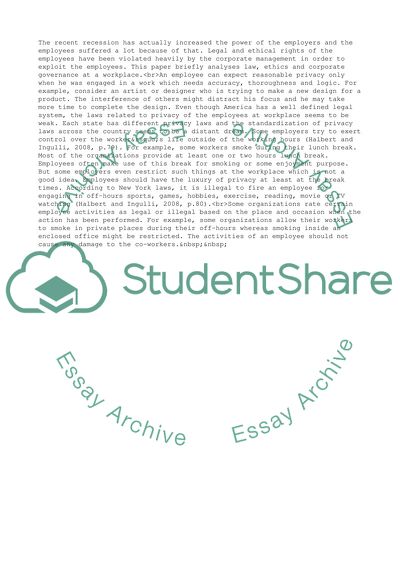Cite this document
(“Privacy of an Employee in the Workplace Assignment”, n.d.)
Retrieved from https://studentshare.org/management/1568698-law-ethics-and-corporate-governance
Retrieved from https://studentshare.org/management/1568698-law-ethics-and-corporate-governance
(Privacy of an Employee in the Workplace Assignment)
https://studentshare.org/management/1568698-law-ethics-and-corporate-governance.
https://studentshare.org/management/1568698-law-ethics-and-corporate-governance.
“Privacy of an Employee in the Workplace Assignment”, n.d. https://studentshare.org/management/1568698-law-ethics-and-corporate-governance.


